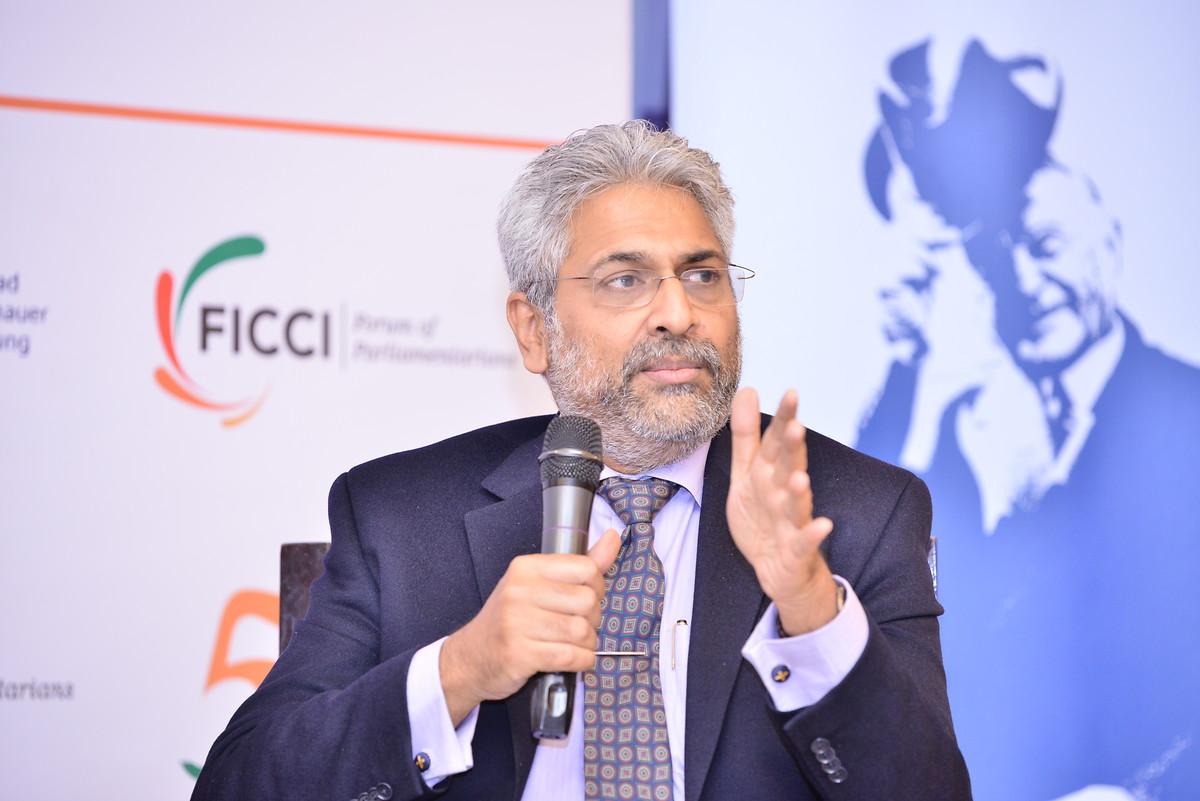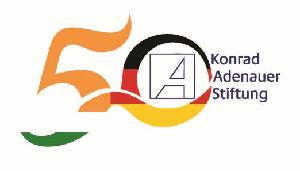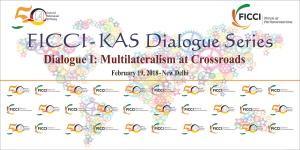KAS-FICCI Dialogue I - Foundation Office India
Event Reports
At the beginning of the event, Yuri Afanasiev, UN Resident Coordinator and UNDP Resident Representative in India, and Jasper Wieck, Deputy Chief of Mission of the German Embassy in India, explained how they assess the current situation and future of multilateralism and its institutions. Mr. Afanasiev explained that the world order is currently undergoing changes that would have started 10 years ago but have only come to light in the last 3 years. While uncertainty prevails at the present, he assessed the future of multilateralism optimistically. The current consensus on the reform of multilateral organizations was hard to arrive at, but it could be realized in about 10 years or so from now on. "International cooperation is the key to achieving our development priorities as nations and as a planet." This is reflected, among other things, in the adoption of the Sustainable Development Goals (SDGs). Referring to India, he emphasized that he was impressed by India's dynamic engagement and referred to India's involvement in various UN institutions and support for the Paris Climate Agreement: "Countries like India will shape the contours of multilateralism in the 21st century." Jasper Wieck emphasized that not only multilateralism is currently under stress, but that it is constantly challenged. Nevertheless, it is able to adapt to the challenges occurring. Transparency, inclusiveness and ownership give legitimacy to multilateral structures, institutions and decision-making. He emphasized that in multilateral institutions it is often difficult to reach a compromise between the different interests of the states, but at the end this is always worth the effort. He described the current global power shifts and digitization as the biggest challenges. He was optimistic that the current efforts to meet these challenges can be successful. "In this process, India and Germany can make a difference together, be it in international trade and investment relations or in the area of cooperative security."
In brief statements, the invited experts commented on the current status and future of multilateralism. Mr. C. Raja Mohan, director of Carnegie India, was less optimistic than the previous speakers. He emphasized that multilateralism was currently in trouble and warned about too high expectations. Also Dr. Ajay Chhibber, FICCI's Chief Economic Advisor, was skeptical because of the rise of China. China would create its own institutions to undermine the existing multilateral system and would seek a bipolar world order. According to Mr. Siddharth Varadarajan, founder and editor of the news website "The Wire", the world community is at a dangerous point. The growing rivalry of the major powers and the current instability of the world order demand pragmatic solutions, and India would be well advised in this situation not to choose one or the other side. Ms. K. Kavitha, Member of the Indian Parliament, pointed out that the emergence of regional plurilateral and bilateral groupings is a direct consequence of the failure of multilateral institutions to adequately solve existing problems. Therefore, the multilateral institutions would have to reform and adapt their structures in order to solve the current problems effectively. The former foreign secretary Ambassador Kanwal Sibal emphasized that the UN has been unable to act effectively as the structure of the organization was inadequate. First, the problem is that states like the US act on the premise that they seek multilateral solutions only if that would be in accordance with its national interests. On the other hand, the UN has not managed to find a mutual stance on topics such as terrorism. Mr. T. S. Viswanath, an expert in WTO affairs, warned about the increasing protectionism and called for the WTO to be seen not merely as an institution facilitating market access but also as a political project for enhancing the cooperation between states. Prof. Rajesh Rajagopalan, School of International Studies at Jawaharlal Nehru University, pointed out that multilateralism is currently facing more and more problems than ever before. This probably due to the fact that the difference in comparison to the Cold War is that the power balance between the US and China is significantly lower than it was between the United States and the Soviet Union during the Cold War.
Dr. Sanjaya Baru, Secretary General of FICCI, concluded that countries like Germany and India can make a difference in shaping multilateralism and that not only the big states like the US and China are responsible for it. Mr. Peter Rimmele, Resident Representative to India of KAS, emphasized that finding a consensus is always difficult, but in the end it would always be worthwhile. He added that India and Germany, as strategic partners, would successfully coordinate and work closely together in the G20, the United Nations and other multilateral fora.


















